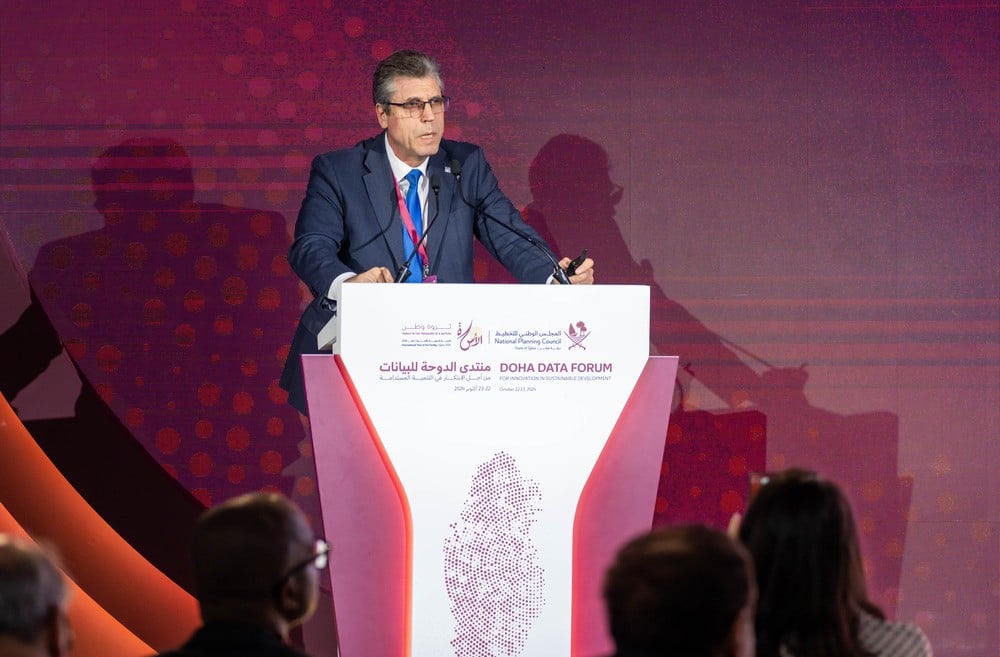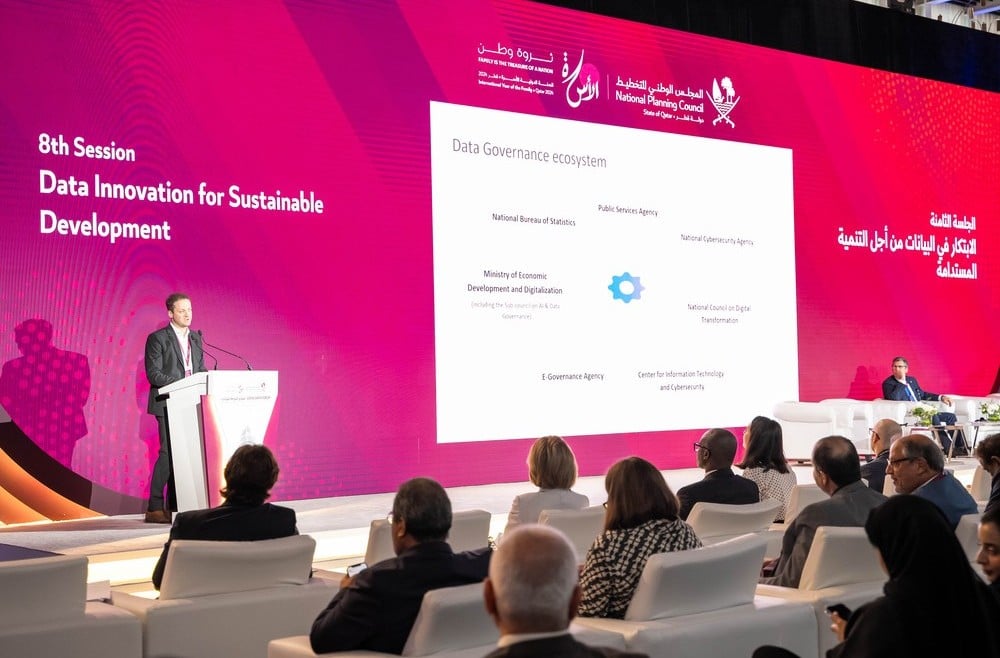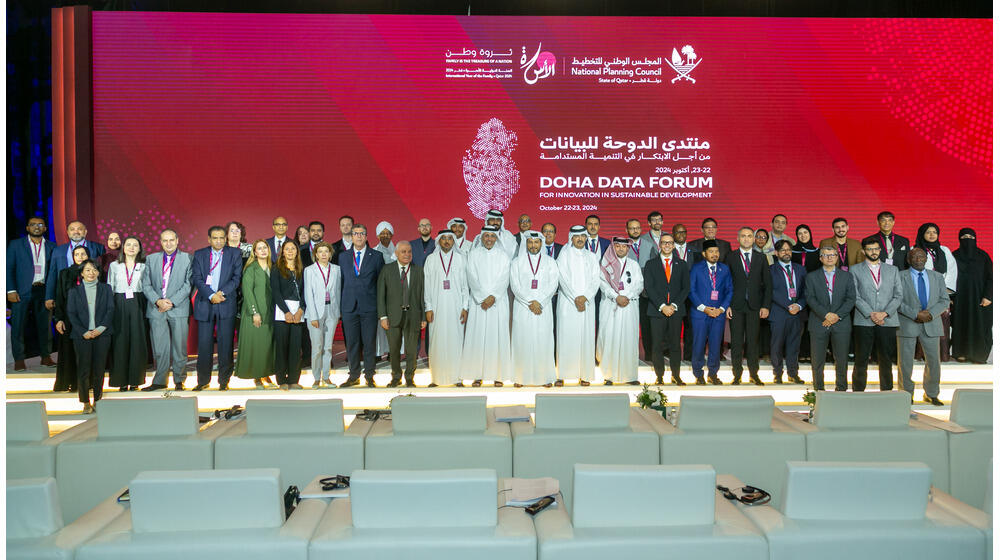Moldova is making significant steps in advancing Triangular and South-South Cooperation in the fields of data governance and artificial intelligence (AI). By building partnerships with developed countries in the Middle East, Moldova aims to leverage diverse expertise, share innovative solutions, and address common challenges in data-driven development. These and other important topics were discussed at the Doha Data Forum in Qatar, held on 22-23 October 2024. The forum brought together delegations from various regions around the globe, providing an excellent platform for exchange of countries' expertise in leveraging technology and innovation to strengthen data and statistical systems in Moldova.
Present at the event, Karina Nersesyan, the UNFPA Moldova Representative, the organization that supported this visit, mentioned that Moldova's efforts in leveraging data for strategic planning and informed decision-making are impressive. "Moldova's leadership in leveraging data for informed planning and decision making is commendable. These data governance efforts are creating a ripple effect to embrace data-driven solutions for a better world." stated Karina Nersesyan, UNFPA Representative in Moldova.

As a candidate for European Union membership, the Republic of Moldova is committed to advancing a digital statistical system, incorporating modern technologies and software to enable electronic data collection and analysis. This shift aims to ensure reliable, high-quality data that aligns with EU standards. As an example, Mr. Oleg Cara, General Director of the National Bureau of Statistics of the Republic of Moldova presented the transition to the digital Population and Housing Census (PHC) and modern tools that were used for the first time in Moldova. “The Republic of Moldova has made substantial progress in modernizing the National Statistical System and aligning official statistics with international, particularly European, standards. Qatar’s model has provided new perspectives on implementing robust and inclusive data systems that ensure accurate information for both national and international authorities and users, thereby contributing to sustainable development and population well-being,” stated NBS General Director Oleg Cara.

Artiom Cociu, Head of the Office for Coordination of Government Priorities Implementation, reaffirmed Moldova’s commitment to advancing digitization which will drive socio-economic reforms, reduce inequalities, and contribute to the achievement of the 2030 Agenda, while also encouraging international partnerships to support these efforts. “Moldova is making considerable strides in digital transformation, with AI as a driver for sustainable development and economic growth. The Forum provided a valuable opportunity to support our national priorities by learning from Qatar’s experience in integrating AI into their governance structures,” said the Moldovan Government representative.

During the mission, the Moldovan delegation met with representatives from Qatar’s National Planning Council, Ministry of Social Development, and Qatar Fund for Development (QFD), as well as the Moldovan Ambassador to Qatar, Iulian Grigoriță, who facilitated the meetings. They agreed on several areas for cooperation to learn from Qatar’s data and statistics model, which emphasizes technology and AI in statistical processes and government reforms.
UNFPA Moldova continues to be a dedicated partner in fostering modern, data-driven governance and expresses gratitude to all partners for their commitment to international collaboration. This meaningful exchange of experience marks a significant step toward building a more resilient and future-oriented Moldova.
This initiative is supported by UNFPA and India-UN Development partnership Fund as part of "Moving from traditional to register-based statistical system, resilient to humanitarian and emergency shocks" project.


